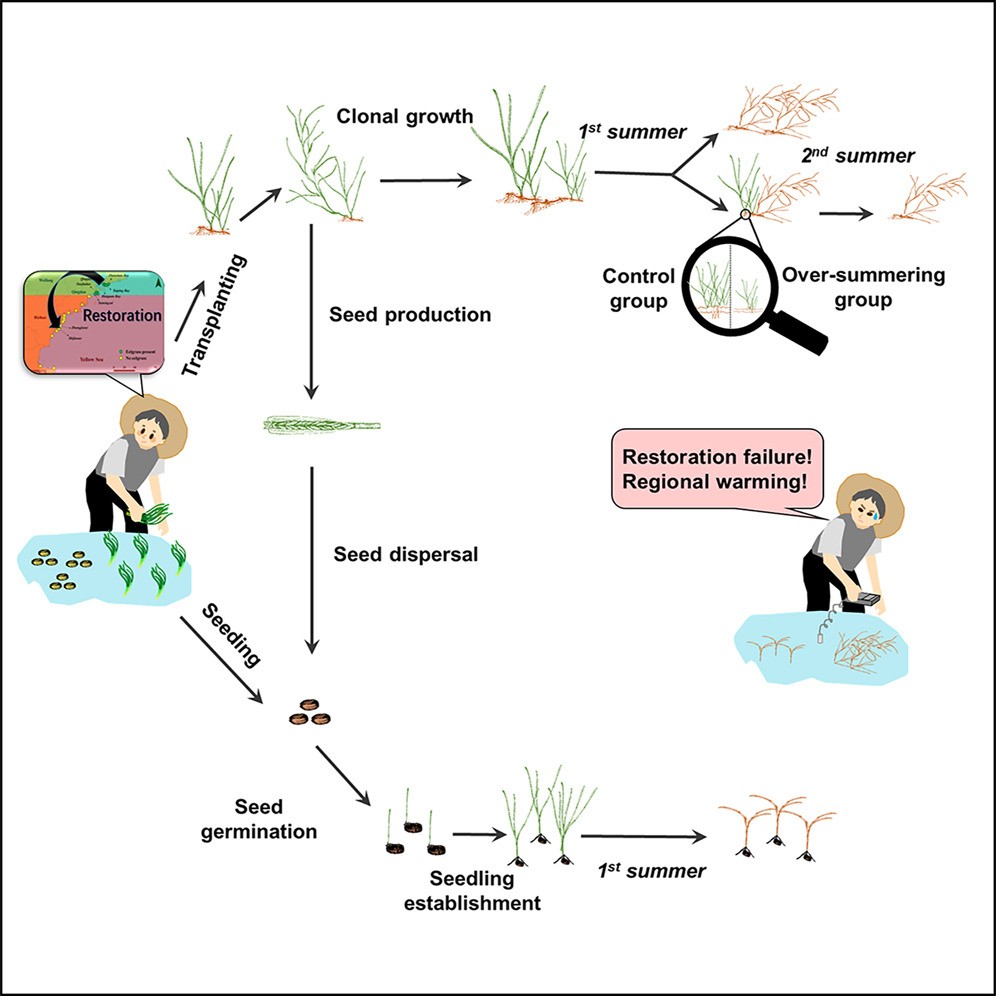
Global warming has caused an increase of the average upper ocean temperature by 0.07°C per decade. These temperature increases affect marine species and ecosystems in many ways, including enhanced mortality of key habitat-forming species such as seagrass, changes in species distributions, and a greater incidence of disease.
Recently, a research team led by Prof. ZHOU Yi from the Institute of Oceanology of the Chinese Academy of Sciences (IOCAS) has firstly reported the northward shift in the southern limit of the iconic temperate seagrass Zostera marina (eelgrass) on the eastern coast of China and revealed that global warming is the reason underneath.
The study was published in iScience on July 13.
The researchers conducted 16 transplantations of adult eelgrass shoots and seeds at the historical southern distribution limit of eelgrass between 2016 and 2021. They also monitored the eelgrass morphological performance, molecular traits, and environmental parameters.
They found that high water temperatures resulted in the restoration failure of Z. marina at the edge of its biogeographical range. Transplanted eelgrass was negatively affected by high water temperatures, and most shoots did not survive the first summer and none survived the second in the transplants of shoots or seeds between 2016 and 2021.
The transplanted eelgrass that experienced thermal stress exhibited declines in seagrass growth, lower shoot height, reduced energy storage ability (rhizome diameters), and an increased mortality rate.
Furthermore, antioxidant enzyme activity of transplanted eelgrass changed with increasing water temperature, and heat shock proteins (HSP)70 and luminal-binding protein (BIP) were significantly up-regulated under heat stress conditions. "High water temperature, which has been proven to be one of the direct causes of seagrass shoot mortality, poses a significant threat to seagrass restoration, especially at the edge of its biogeographical range. Increasing temperatures associated with global warming are likely to continue to shift the range edges of eelgrass in a northerly direction," said XU Shaochun, first author of the study.
"Our study provides a strong set of evidence that the southern limit of Z. marina in China has shifted north. While range shifts and tropicalization are widely reported, this is the first evidence of climate warming causing northward shifting of suitable eelgrass habitat," said Prof. ZHOU.

A schematic diagram indicating that warming causes a northward shift in the southern limit of the temperate seagrass Zostera marina (Image by IOCAS)

86-10-68597521 (day)
86-10-68597289 (night)

52 Sanlihe Rd., Xicheng District,
Beijing, China (100864)

